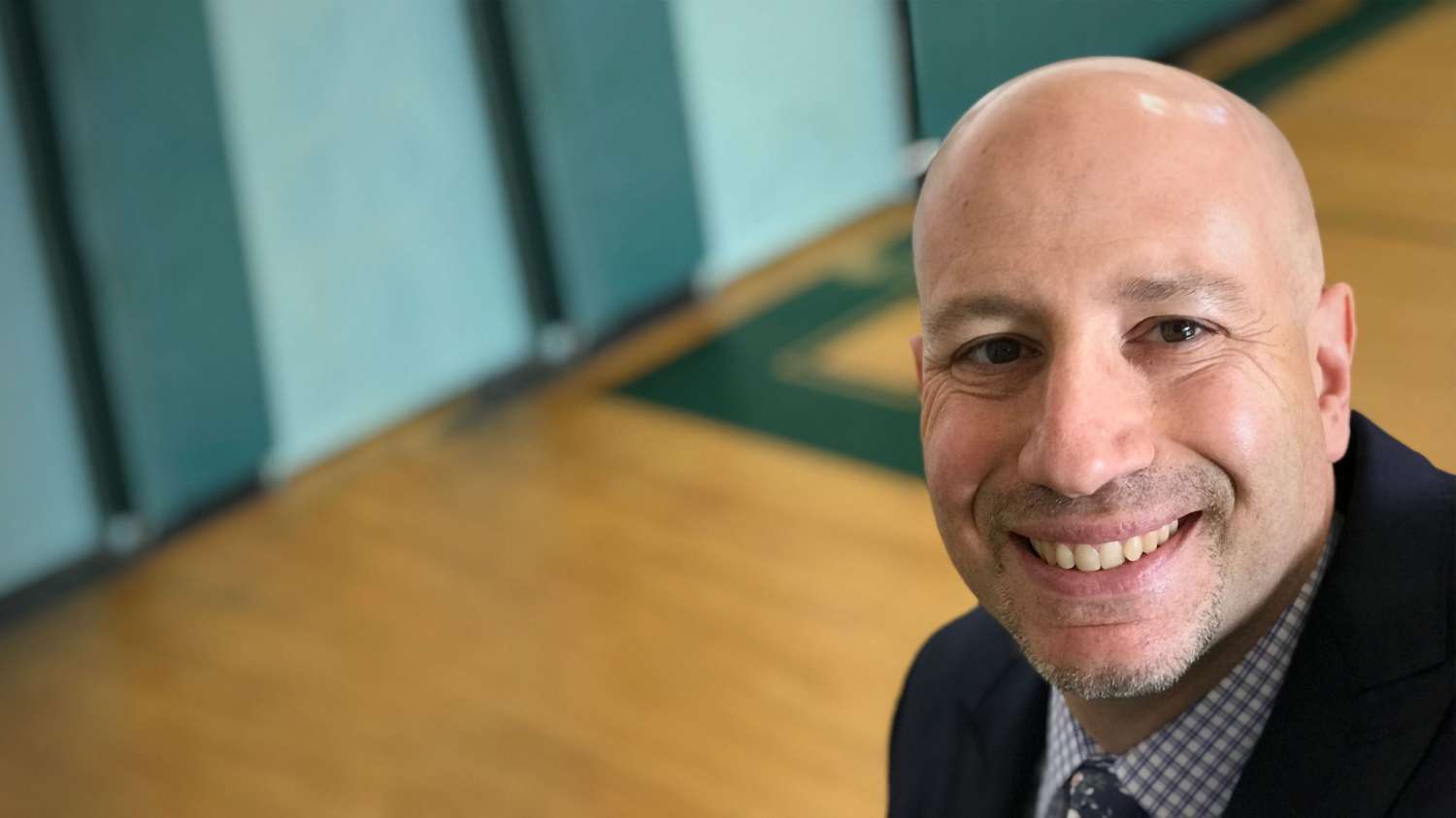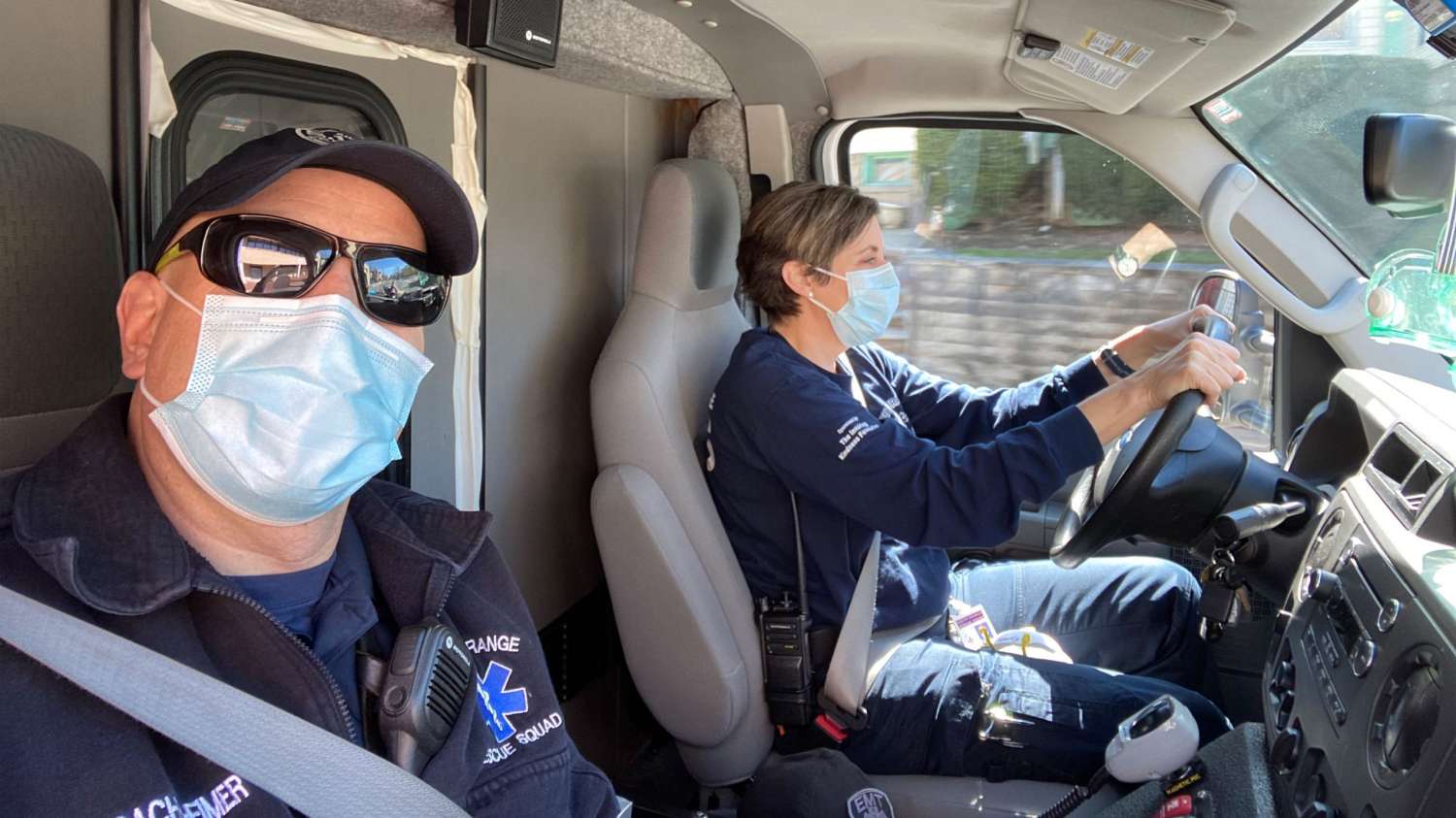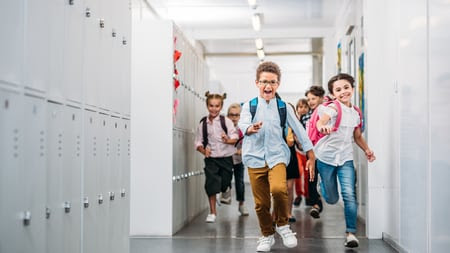For Information or to Register CLICK HERE
All Posts (9)
Sharing on behalf of the department of Teaching and Learning....
With uncertainty comes possibility. As educators adjust to current circumstances and take on the responsibility of online teaching, Montclair State University holds true to its rich teacher preparation history by creating a new program to help you define your own tomorrow.
Registration is now available for a new, fully online course, Online Instruction for Students with Disabilities. This course is the first of a two-course series that will constitute the new Virtual Learning for Students with Disabilities program that Montclair State's College of Education and Human Services will be offering soon.* This online program is designed for teachers who are looking to discover new technologies as they redesign curricula and instruction for the virtual learning environment.
We have all been challenged by the abrupt shift to online instruction. Those of us who teach students with disabilities have the added burden of ensuring that students continue to learn and progress, without falling further behind. Montclair State’s new online certificate program will help you take what you know best about how to teach students with disabilities and transfer those skills to a virtual classroom.
Spaces in the initial cohort are limited. Take your next professional development step and apply to start this summer. The first course will run from August 10 to August 27. The second course will be scheduled to start this fall, which will allow you to complete the program before the end of the calendar year and settle into your routine.
To learn more about this program, register for a webinar on Wednesday, July 8 at 1 p.m.
Sincerely,
Jennifer L. Goeke, PhD
Associate Professor
Graduate Program Coordinator
Department of Teaching and Learning
Montclair State University
Answering the Call
A Montclair State alumnus and expert on virtual learning prepares schools for reopening and moonlights as EMT
Posted in: Education, Graduate School
 Barry A. Bachenheimer ’01 MA follows his passions in teaching and emergency services.
Barry A. Bachenheimer ’01 MA follows his passions in teaching and emergency services.
Barry A. Bachenheimer ’01 MA has experienced the coronavirus crisis on two fronts: As a first responder saving lives, and, when the pandemic closed schools, in educational triage helping teachers move instruction online. Now he’s working on a third front – making sure both teachers and students are ready for an uncertain fall and can adjust to changes.
“I think we got thrust into this really fast, and as a result, I don’t think we had a chance to figure out what was the best. We just worked on what was the most expedient,” Bachenheimer says.
At Montclair State, he’s on call with the Center of Pedagogy, where he is a frequent facilitator,
this spring sharing his expertise on the must-have apps and digital strategies when teaching and learning suddenly shifted. Later this summer, he will provide professional development for returning teachers and clinical interns.
He also works as a volunteer emergency medical technician (EMT) on an overnight shift with the South Orange Rescue Squad. “The months of March and April, there were a lot of sick people we were dealing with. It was very scary.”
Now that the rate of infections has slowed, New Jersey has begun reopening the state, including a September restart for K-12 schools. Gov. Murphy on June 26 said students will return to classrooms at least part-time this fall.
 Barry A. Bachenheimer, left, on call in South Orange, New Jersey.
Barry A. Bachenheimer, left, on call in South Orange, New Jersey.
Bachenheimer is now focused on working with educators to make sure students and teachers can adjust quickly to changes that may occur. “We need to prepare so that schools could move online again if there is a local outbreak or resurgence of cases,” Bachenheimer says. “I can see us quickly having to pivot back to remote learning for two weeks. I can see a lot of back and forth.”
Bachenheimer has more than 25 years experience in the K-12 education field and currently works for the Pascack Valley Regional High School District, where he was recently promoted to assistant superintendent effective July 1.
Nearly two decades ago, his district was the first in New Jersey to launch one-to-one computing, an initiative that provides a computer to every high school student. With the pandemic, its pilot of virtual days when most other schools were closed for inclement weather, enabled instruction for 2,000 students while many other school districts struggled with remote learning or relied on homework packets.
“We are sticking to our four basic concepts, which are flexibility, simplicity, appropriate timing and empathy, and trying to make that all work at the same time,” Bachenheimer says.
Bachenheimer’s doctoral work focused on online learning and he shares his expertise with the Montclair State University Network for Educational Renewal (MSUNER), a school-university partnership.
“In preparation for New Jersey schools opening their doors for fall, he will focus on support for building a learning community in grade school hybrid teaching environments with an emphasis on teaching for critical thinking,” says Network Director Marilyn Davis. This will include advanced teaching for critical thinking in secondary content areas and advanced methods for coaching and mentoring teachers new to a school or school district.
The “other side” of Bachenheimer’s life is in the area of emergency services and public safety, where he has experience in the emergency medical services, firefighting, rescue technician, school security and emergency management fields. He instructs in a variety of areas, including CPR, first aid, tactical medicine, water rescue and first response. In South Orange, he is the training officer for the all-volunteer rescue squad, which includes his teenage daughter Lea, who is also an EMT.
“Helping others, saving lives, and training others to do the same is my personal passion,” he says.
His EMT duty shift is on Sunday nights “and then I go to work bright and early on Monday morning.”
“I’ve gotten really good at time management over the years,” he says. “With the help of some coffee, and a really supportive wife, life moves right along.”
Story by Staff Writer Marilyn Joyce Lehren
|
||||||||||||||||||||||||||||||||||||||||||||||||||||||||||||||||||||||||||||||||||||||||||||||||||||||||||||||||||||||||||||||||||||||||||||||||||||
Sharing on behalf of the ADP Center....
For Additional information or to register Click Here:
Even as we confront the treacherous coronavirus pandemic with a large-scale effort to treat, mitigate and protect our people, leaders are starting to turn their attention to reopening America’s industries, municipalities, and civic society. Governors like Phil Murphy, Andrew Cuomo and Gavin Newsome are speaking about an 18-month plan. Educators, who deserve commendation for the rapid response to organizing online learning to create some continuity for learners, similarly need an 18-month plan. The social and emotional wellness of adults and students must be embraced as an important component of pandemic recovery.
We know from studies, like “Children of Katrina,” that children exposed to natural disasters and their aftermath are much more likely to suffer emotional disturbances than other kids, even years later. And we know which children fare worse than others: poor children, Black and Brown children and learners with special needs.
The virus preys on those who have underlying conditions and are weakened by social neglect that allows our society to push too many people to the margins, with inadequate social and financial capital and few opportunities to improve their lives. Systemic disparities in health, housing, employment, education, wages, nutrition fuel the racial disparities that have resulted in decreased access and opportunity to resources needed to either prevent or treat the “infamous” underlying conditions.
While most of us have had our “worlds” turned upside-down by the health, economic and social realities of living through the COVID-19 pandemic, poor children and children of color have disproportionately had many of their loved ones die. Every day, they see relatives leave the house and expose themselves to a potentially lethal virus that they then bring back home. They have heard family members worry about food, rent, heat, electricity and how to get health care when it’s needed.
This once-in-a-lifetime health challenge will have a life-long impact on the social and emotional wellness of our children and youth. Schools must recognize this. Our children cannot go back to business as usual. Schools must devote the first two to three weeks to welcoming and healing. The social-emotional wellbeing of students and staff should be the focus. Everyone has had losses -- time, last year’s classmates and teachers, opportunities, loved ones — and these must be acknowledged and grieved.
The inequities that have been in plain sight but now are too illuminated to ignore must be kept in view. Awareness of differences and the requirement to be inclusive and to treat all children with dignity, respect, consideration and support should be built into these initial weeks and become part of the everyday norms for every day of every school year.
The pandemic has illuminated the historical disparities for children of color, children of poverty and children with special needs. These children and all children must learn skills of leadership, social action, and civic participation. All students must be helped to identify their sense of positive purpose, which we know from research is a powerful motivator for learning. The stories of those who have been disadvantaged must become part of the curriculum if all students and staff are to be liberated from the grip of prejudice and oppression.
It is frequently said that “out of crisis comes opportunity.” We have the opportunity for schools and communities to engage together to address existing inequities and to build community-wide resources to help students resolve the traumatic impacts of the pandemic on their academic and social development.
There are roles for everyone, including parents, schools, community-based organizations, state agencies, higher education, churches, private sector, non -profits, community-based mental health services, advocacy organizations and others to engage with each other to create locally developed solutions that embrace the necessity to attend to this trauma.
We must adopt a long-term view on supporting the social-emotional wellness of the learners and all the adults engaged in the public education enterprise. And we must keep a sustained focus on what the pandemic has made clear to all of us about the price of social inequities.
Maurice J. Elias is a professor of psychology at Rutgers and directs the Social-Emotional and Character Development Lab. He’s also the author of “The Joys and Oys of Parenting,” and “The Other Side of the Report Card: Assessing Students’ Social, Emotional, and Character Development”
Larry Leverett is a retired educator who was an assistant commissioner of education in NJ and superintendent of Plainfield Public Schools.
Our journalism needs your support. Please subscribe today to NJ.com.
The Star-Ledger/NJ.com encourages submissions of opinion. Bookmark NJ.com/Opinion. Follow us on Twitter @NJ_Opinion and on Facebook at NJ.com Opinion. Get the latest news updates right in your inbox. Subscribe to NJ.com’s newsletters.


.png?width=600&upscale=true&name=Conversation%20with%20Zaretta%20Hammond%20FB%20Live%20square%20(3).png)

